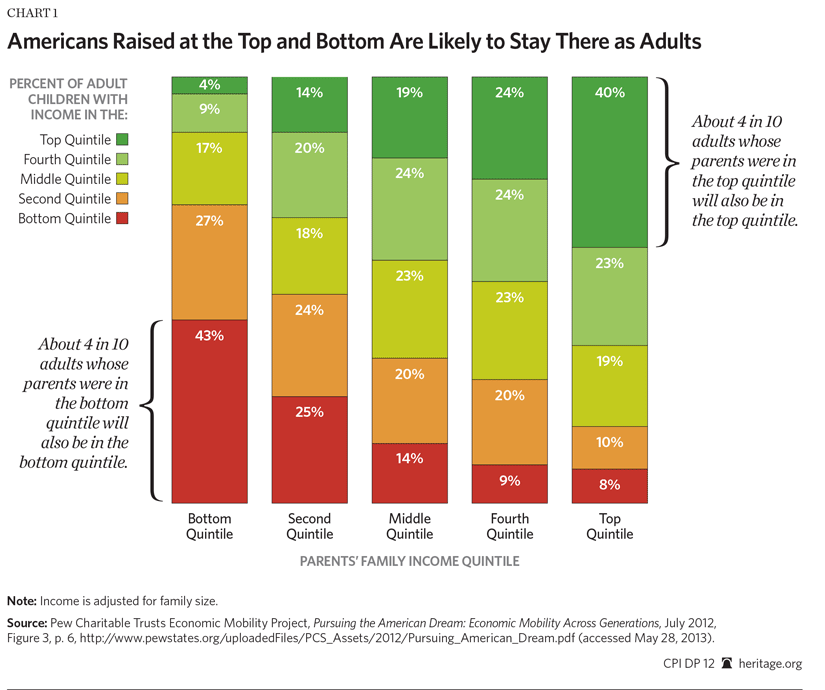



We use mediation analysis to present suggestive evidence that informal manifestations of “rugged individualism”-those embodied by the individuals themselves-are more strongly associated with upward mobility than formal policy or selective migration. Using commuting zone fixed effects and a suite of county-level controls to absorb regional variation in frontier experience and modern economic conditions, we find an additional decade of frontier experience results in 25% greater modern-day income mobility for children of parents in the 25th percentile of income and 14% for those born to parents in the 75th percentile. We combine county-level measures of frontier experience with modern measures of the causal effect of place on mobility-the predicted percentage change in an individual’s earnings at age 26 y associated with “growing up” in a particular county. Areas in the United States that were isolated on the frontier for longer periods of time during the 19th century have a stronger culture of “rugged individualism”. We assess how variation of historically driven individualism within the United States affects mobility. Across different nations, variation in growth and mobility have been linked to more individualistic cultures. Even within the United States, the “causal effect of place” varies greatly and cannot be fully explained by socioeconomic conditions. Where an individual grows up has large implications for their long-term economic outcomes, including earnings and intergenerational mobility.


 0 kommentar(er)
0 kommentar(er)
